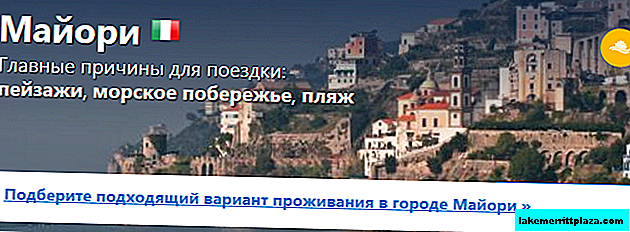When you arrive in Rome, you will first be puzzled over which bus or metro ticket you need to buy, how much it costs. Let's figure it out.

ATAC Rome Bus
When you arrive in Rome, you will first be puzzled over which bus, tram or metro ticket you need to buy, how much it costs. Let's figure it out.
Types of transport tickets
The ticket is single and operates on the metro, bus, tram. Transplants are allowed within the specified time. Before the trip you need to validate the ticket.
- B.I.T. (biglietto integrato tempo) - 1 trip with transfers for 100 minutes € 1,50;
- B.I.G. (biglietto di un giorno) - one-day ticket (until 23:59) € 7;
- B.T.I. (3-giorni biglietto turistico integrato) - 3-day ticket € 18;
- C.I.S. (turistico di una settimana biglietto integrato) - ticket for 7 days € 24.
If you want to travel around Rome, you need to buy tickets for the Lazio region, for example:
- BIRG (Biglietto Integrato Regionale Giornaliero) for 1 day for € 3.30-14 (depending on the zone).
See the current ticket prices at www.atac.roma.it.
Where and how to buy tickets?
Tickets are sold in special vending machines and ticket offices at metro stations, in newspaper and tobacco kiosks. If you have a SIM of a local operator, then a ticket can be bought via SMS.

Ticket machine in Rome
The easiest way to buy tickets is at the machine at the entrance to the subway. Choose English, one of 4 types of tickets, then the number of tickets. You will see the total amount. Load coins or bills at this time. After that, the machine will print the tickets and return the change.
Buses do not need to buy tickets from the driver. Inside, there is a yellow machine that accepts coins. Load € 1,5 into it and get a ticket. Do not forget to immediately compost.!
Rome metro map

Download Rome metro map
1964
Rome Metro website: www.romametropolitane.it
How to calculate the route?
I have one universal way that works in Rome, and in Prague, and even in Bangkok. On my phone I have the Google maps application installed. In the search I’m picking up the place I need. I click on the red icon. I choose how to get there: by transport or on foot. And I get the route and schedule with the numbers of buses, trams and metro.




Roma Pass Card

Roma pass
The Rome Roma Pass tourist card pays off. It is of two types: for 2 and 3 days.
Roma Pass 48 Hours costs € 28;
Roma Pass 72 Hours - € 38.50.
Up-to-date information at www.romapass.it.
The card entitles you to a free visit to 1/2 museums in Rome or archaeological sites to choose from, as well as a discount for further visits to all other museums (except the Vatican Museums) and archaeological sites.
Roma Pass offers discounts for attending exhibitions, concerts and other cultural events, as well as free use of Rome's public transport for 2/3 days.
With Roma Pass you will receive a Kit package, which includes:
- a ticket for public transport;
- map of Rome;
- A guide to museums Roma Pass Guide;
- Roma News with a program of cultural events.








